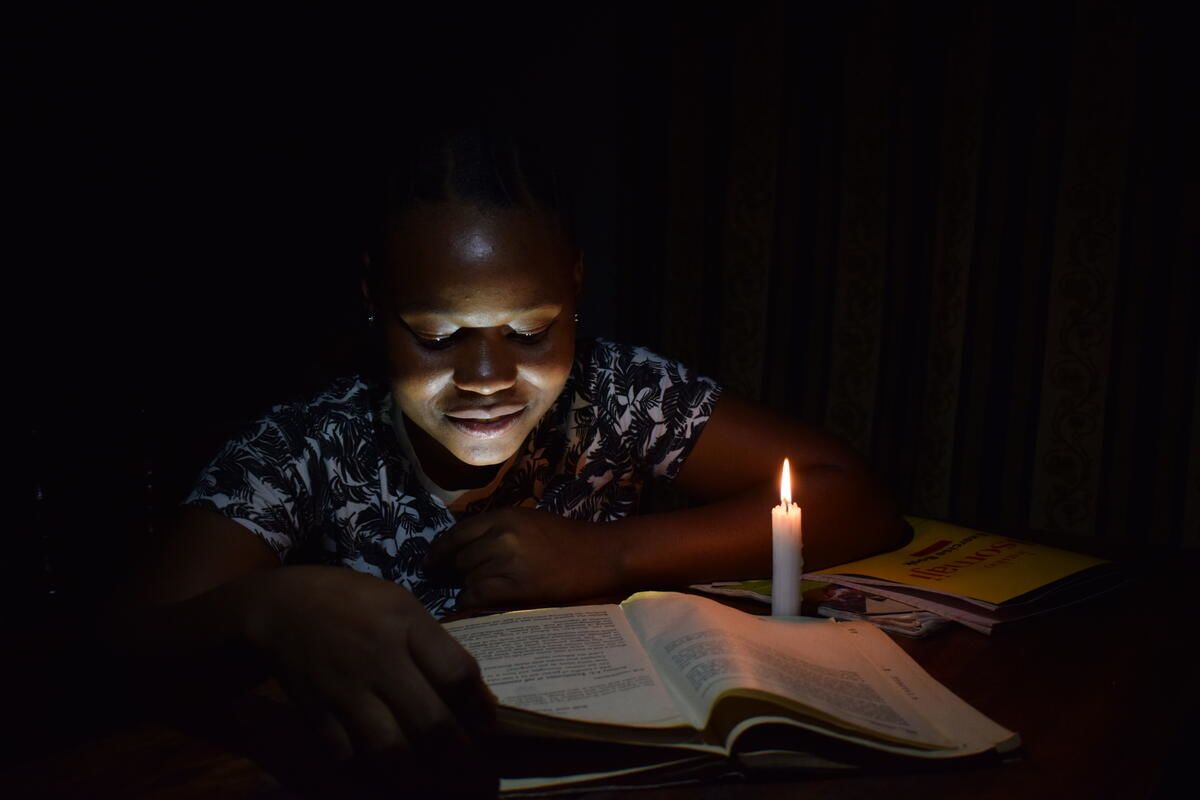Keeping the Dream Alive

What if COVID-19 school closures meant a girl faced not just inconvenience, but the possibility that she would never be able to graduate? What if not having access to electricity was what stood between her and her dream of becoming a nurse?
What if you could be the reason she overcomes these barriers and achieves her goal?
When the COVID-19 pandemic broke out across the world last year, Tanzania acted to stop the spread with a raft of preventative measures – including closing schools. Like for children everywhere, those school closures turned the lives of most children in Tanzania upside down.
But for children like 17-year-old Halima, who is from a small, rural community in the country’s centre, those months out of school threatened to unravel everything she has been working so hard to achieve – for good.
Halima is part of the World Vision child sponsorship programme and with her sponsor’s support, she had been studying Form Four (Grade 10) in a secondary school in the regional centre of Mundemu, some distance from her village.
She stayed in a student hostel during school time and spent her evenings studying with friends and dreaming of a future helping to improve the health of people in rural areas, like her home community.
“My dream is to become a nurse and I would love to operate in the villages so that I can serve mothers and children and educate youth on their health,” explains Halima.
Form Four is a critical qualification for students hoping to go to university, but Halima was not even halfway through when COVID-19 shut down her school, and she had to return home. Her studies came to an abrupt halt.
Halima couldn’t access the remote learning programmes that the Tanzanian Government was broadcasting, because her home doesn’t have a television, or even electricity to read by in the evenings. Every day, she fell further behind.
“Studying at home was very hard,” says Halima. “My parent’s priority is house chores and they view learning as an extra thing. But at night there is no electricity in our village, so the only source of light that I can read from is candle and or at times kerosene lamp.”
It would have been easier for Halima to give up, lose sight of her dream and accept the reality of following her parent’s footsteps into agricultural work. But she was determined to keep learning.
“I mostly used exercise books to study the material we covered from Form One all the way through to the beginning of Form Four at the start of the year,” she explains.
“Once, my classmates and I went to a teacher’s house to watch a biology subject on TV, but the power went off halfway through the programme. It made me miss even more my time at school and the hostel, studying at night, discussing ideas and learning from my classmates.”
With support from sponsors, World Vision has partnered with the local government to distribute learning materials to remote areas, so that children like Halima can keep studying and working towards a different future.
The sponsorship programme is also equipping teachers across Tanzania to support children to recover from the psychological and educational effects that the pandemic has had on their lives. Sponsors’ support is also providing food and other resources for families who desperately need help to cope with the sudden and devastating economic impacts of the pandemic. And it’s helping parents find new ways to earn an income and get back on their feet.
School has now reopened in Tanzania – but for many children in rural areas, the trajectory of their lives had already shifted. With families under pressure, some parents’ are putting less value on education and encouraging children to go to work instead. Some children have fallen behind, and unable to keep up with their studies, have withdrawn. Child sponsorship – and lots of determination – is the reason that Halima isn’t one of them.
“The Form Four examinations are the pathway to my dream, so I am studying very hard regardless of the circumstances. I will achieve my dream,” she says.
2021 is turning into a humanitarian crisis for children. There have never been more reasons to sponsor a child than there are now.
You could be the reason that the dreams of a girl like Halima survive COVID-19. One reason at a time – you can change the course of this crisis.
